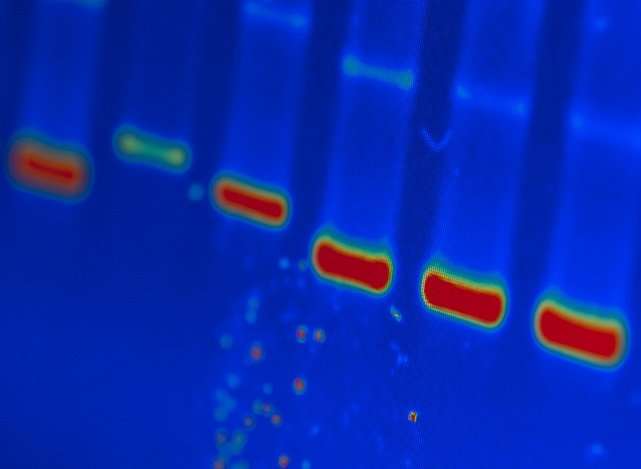A type 1 diabetes genetic score can identify infants at risk for pre-symptomatic type 1 diabetes and could be used to enroll children into type 1 diabetes prevention trials. Credit: University of Michigan School for Environment and Sustainability, Flickr
A type 1 diabetes genetic score can identify infants at risk for pre-symptomatic type 1 diabetes and could be used to enroll children into type 1 diabetes prevention trials, according to a study published this week in PLOS Medicine by Anette Ziegler of the Helmholtz Zentrum Muenchen, Germany, and colleagues.
Around 0.4% of newborns will develop autoimmunity to pancreatic beta cells in childhood and receive a diagnosis of type 1 diabetes before adulthood. In the new study, researchers calculated genetic scores from over 30 genes for more than 3000 children with no family history of type 1 diabetes but with gene variants known to convey type 1 diabetes risk and who participated in the TEDDY prospective cohort study. Each participant was enrolled at infancy, between 2004 and 2010, and followed in 3 to 6 months intervals for 10 years to track any development of islet autoantibodies and subsequent type 1 diabetes.
The upper quartile of genetic scores in the children was associated with a greater than 10 percent risk for the presymptomatic stage of multiple islet autoantibodies by age 6. This compares to a background population risk of 0.4%. Almost half the children in the study who developed pre-symptomatic or symptomatic diabetes were identified by this score.
The finding "greatly extends the possibilities of enrolling participants into clinical trials aimed at evaluating type 1 diabetes prevention strategies that could be applied in infancy and before the development of autoimmunity," the authors say.
More information: Bonifacio E, Beyerlein A, Hippich M, Winkler C, Vehik K, Weedon MN, et al. (2018) Genetic scores to stratify risk of developing multiple islet autoantibodies and type 1 diabetes: A prospective study in children. PLoS Med 15(4): e1002548. doi.org/10.1371/journal.pmed.1002548
Journal information: PLoS Medicine
Provided by Public Library of Science





















